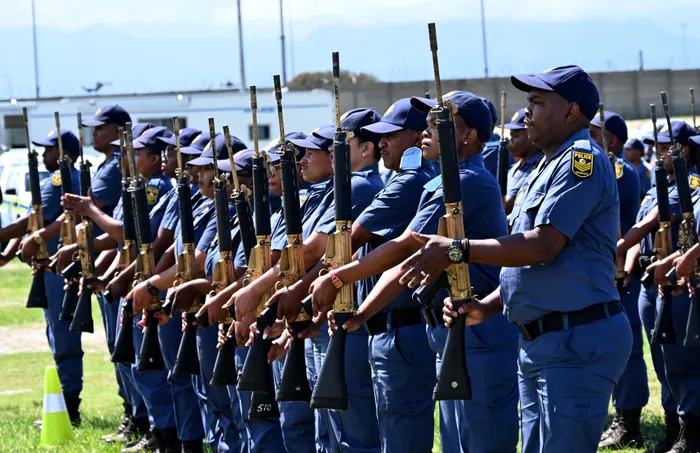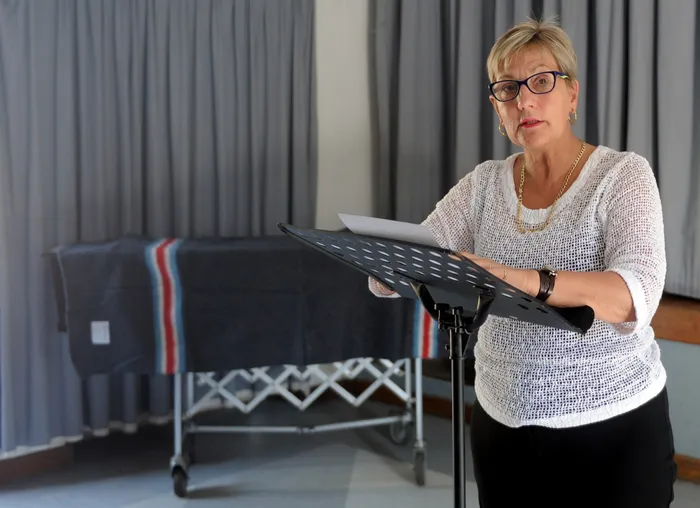Cape Town safety sheriff JP Smith criticises SAPS for failing to share crucial crime intelligence

Mayco member for Safety and Security JP Smith.
Image: File Picture
The City of Cape Town’s Mayoral Committee Member for Safety and Security, JP Smith, has slammed the South African Police Service (SAPS) for failing to share critical intelligence with the City, a move he says is crippling efforts to fight crime and putting residents’ lives at risk.
“The issues with the co-operation agreement lies not with the agreement but the implementation thereof. There are various workstreams to the agreement which have been implemented and are functioning to a certain degree. However, the workstreams related to sharing of intelligence and data are not functioning as desired,” Smith said.
Smith explained that while SAPS relies on City resources, it has not fully embraced the City as a partner in the fight against crime.
“The SAPS is reliant on City resources but is not embracing the City as a real partner in the fight against crime through the sharing of daily crime data that would assist with deployments, more effective planning and integration.
“The lack of integration between the SAPS Crime Intelligence and the City’s Safety and Security Information Management Systems (SSIMS) and the coordination of information about various issues such as extortion at construction sites and information on parolees are some of the specific concerns.”
The City already provides certain datasets to SAPS, including ShotSpotter information, data from its EPIC and PECC departments, public safety risks, tip-offs from the public, and assistance with specific requests.
“The City is not mandated to undertake crime intelligence and therefore has no function to present SAPS with crime intelligence. We do, however, share Shotspotter data, data from our EPIC and PECC departments, public safety risk, tip-offs received from the public and assist with specific requests received from SAPS etc. The City and local government can be a major asset to SAPS if better integration is embraced, as the local government holds vast amounts of data that could significantly support criminal investigations.”
Smith emphasised the type of intelligence the City expects from SAPS:
“At the moment the City only obtains crime statistics but this is ineffective and only tells us what crimes have been reported. The City can play a meaningful role if it is supplied with data on the illegal firearm trade, murders, gangs, and extortion syndicates.

SAPS said that crime intelligence information of relevance to the City of Cape Town and its Law Enforcement agencies is indeed shared through established and appropriate channels.
Image: Ayanda Ndamane/ Independent Media
“These are the major threats plaguing our city, and it’s impossible to argue that better information sharing wouldn’t benefit both the City and SAPS in combating them more effectively. There is already significant overlap between gangs, taxi networks, and construction syndicates, making it nonsensical for us to continue working in silos when investigating these groups.”
The City says it would use such intelligence to guide law enforcement more effectively:
“When it comes to gang violence and high-risk stations, it is imperative that the officers are briefed at the start of a shift on the crime threat analysis within the precinct and which offenders and crime patterns they should be observing and if they are vehicles or suspects that they should be on the lookout for.
“Otherwise, the officers are much less effective and impactful than they could be. This information would allow LEAP and metro police officers to ensure that they are assisting the National Police service in targeting persons who represent a crime threat and are optimally assisting the community in improving their safety.
“The more data you can overlay in hotspots, the more accurately you can patrol. The City is already layering WC Government homicide data, EPIC data, and ShotSpotter data to guide pre-planned patrols, and adding crime data could make a considerable impact in combating crime.”
Despite repeated attempts over the past decade to engage SAPS leadership on intelligence sharing, Smith said progress has been limited.
“The City has engaged the South African Police many times over the last decade to attempt to gain access to crime data and crime intelligence with limited or no success. This was one of the matters we hoped to resolve in the implementation protocol for the co-operation agreement which remains unsigned and has not been concluded as SAPS do not concur on any of these significant matters.”
Smith confirmed that intelligence sharing is managed at a national level but stressed the potential impact on local crime reduction:
“Crime intelligence is the mandate of the national police department and managed by them. This has been raised with the acting minister and provincial leadership. We do strongly believe that the sharing of information can assist us in playing a meaningful role in combatting criminal syndicates. For years I have called for the devolution of policing powers.

Police Oversight and Community Safety MEC Anroux Marais.
Image: Ayanda Ndamane
"This week our SSIMS department were able to secure the arrest of four suspects accused of the murder of LEAP officers along with the SAPS Organised Crime Unit. This was possible because Pakade was a City employee and shows what can be achieved through better collaboration.”
The Western Cape Department of Police Oversight and Community Safety, led by MEC Anroux Marais, has also voiced support for Smith’s call. Marais confirmed the province is fully aware of the City’s requests for improved intelligence sharing.
“We share the City’s view that increased access to intelligence would significantly enhance the ability of Metro Police to plan operations more effectively and take a more targeted approach, particularly in combating gang-related and violent crime.”
The MEC added that while SAPS is legally responsible for crime intelligence, better collaboration would significantly support the City’s law enforcement efforts:
“From my understanding and advice received, there is cooperation between SAPS and the City of Cape Town at various operational levels. However, the consistent challenge remains the sharing of live intelligence data. Some key policy decisions would be required at a national level to consider extending certain intelligence-gathering capacities to law enforcement bodies like the Cape Town Metro Police.
“In our view, SAPS management needs to take decisive steps to facilitate more effective intelligence sharing, as it would add significant value to the work being done by the City’s enforcement units.”
Marais confirmed that the province has escalated concerns to the national Minister of Police and continues to facilitate improved collaboration through the Safer City Cooperation Agreement.
“This agreement explicitly calls for the sharing of resources, including intelligence, to improve policing outcomes. We are equally concerned about the slow progress in fully implementing this agreement and have formally raised our concerns with the Acting Minister of Police, Professor Cachalia, urging that urgent steps be taken to accelerate implementation and address the identified gaps.”

Acting Police Minister Professor Firoz Cachalia
Image: Ayanda Ndamane / Independent Newspapers
Kamogelo Mogotsi, spokesperson for the Acting Minister of Police Firoz Cachalia explained the minister had a meeting with the Premier, Mayor of Cape Town, MMC and MEC on policing oversight.
“The meeting agreed there would be increased collaboration between the three spheres pf government in as far as safety and security is concerned in line with the existing Cooperation Agreement."
Police spokesperson Colonel Andrè Traut said it is important to note that Crime Intelligence is a national component of the SAPS, with clearly defined mechanisms in place to assess and disseminate intelligence on a need-to-know and need-to-act basis.
“Information is shared with stakeholders, including the City of Cape Town, when such intelligence relates directly to their operational environment or falls within their mandate.
“The South African Police Service in the Western Cape wishes to place on record that crime intelligence information of relevance to the City of Cape Town and its Law Enforcement agencies is indeed shared through established and appropriate channels.
Traut further explained while intelligence-driven co-operation remains a key feature of law enforcement partnerships, all crime intelligence information remains classified, and its dissemination is governed by strict national policies to ensure the protection of sources, the integrity of investigations, and the safety of ongoing operations.
“The SAPS in the Western Cape continues to collaborate with the City of Cape Town and other law enforcement partners through existing operational structures and joint initiatives aimed at enhancing public safety and combating crime across the province.”
tracy-lynn.ruiters@inl.co.za
Related Topics: